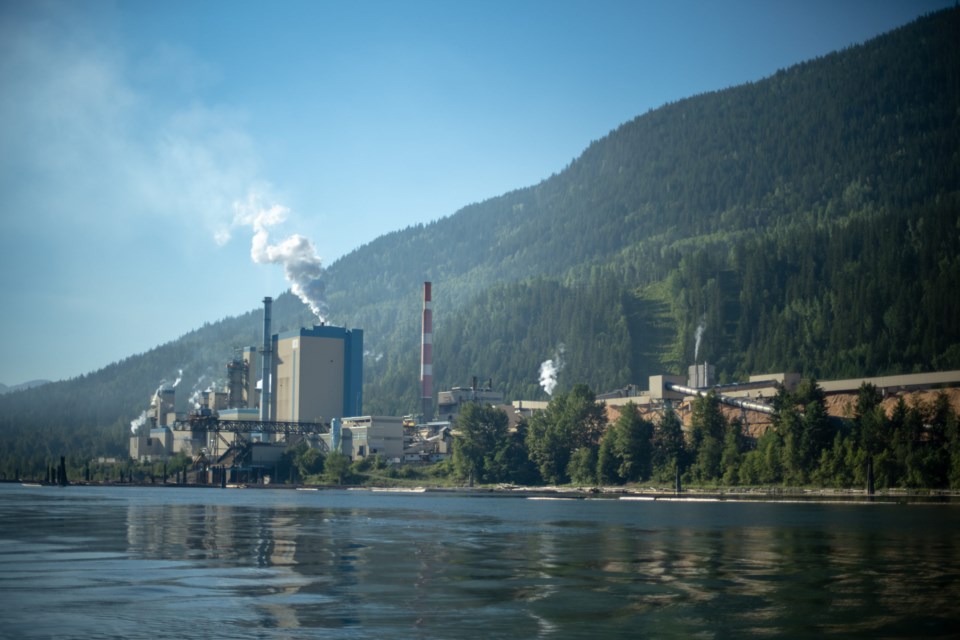Ever had the opportunity to tour a pulp mill?
With a reputation of not smelling very nice, they aren’t exactly tourist destinations. However, they are a powerful driver for the province’s all-important forest industry. There are currently 13 pulp producers operating in BC, including nine in the interior, and four on the coast. BC is also home to five paper mills.
Pulp is manufactured from the fibers of trees, which are sourced either as pulpwood or use residuals from other industrial processes such as lumber manufacturing. Pulpwood or woodchips are transported to the pulp mill, where they are processed to become pulp. Pulp is then used for packaging, printing & writing paper, tissue, diapers, feminine care, rayon fabrics, and specialty cellulose applications.
At the moment, BC pulp producers are facing serious challenges. While China has largely driven global demand growth for pulp products, with pulp shipments to the country recently growing at a 10% compounded annual growth rate (CAGR), events in China have spurred a sudden collapse in prices.
“Because of the coronavirus in China which has slowed down their economy and industrial base, demand is currently down sharply,” notes Paul Quinn, a veteran pulp sector analyst with RBC Dominion Securities.
In total, approximately 75% of global demand growth since 2002 has been attributable to China. Due to its relative lack of domestic capacity, the country also exerts outsized influence on pricing as the marginal buyer of pulp. Long before the arrival of COVID-19, The Pulp and Paper Products Council (PPPC) had forecast Asian pulp demand to grow at a 4% CAGR until at least 2022.
While Quinn is cautiously hopeful sharply lower pulp prices will begin to recover by early next year, he also admits there’s no way of knowing just how long the current struggles will continue.
“It’s hard to say right now…you aren’t seeing a lot of new supply come in from additional mills which is good.”
However, Coronavirus is only part of the problem facing British Columbia’s 13 pulp mills. While still recovering from the Mountain Pine Beetle devastation, the industry is also struggling with a shortage of fibre.
“There are fewer trees to cut, lower residual volumes that go to pulp mills…so I think fibre is going to get particularly tight over the next number of years,” says Quinn.
Pulp prices have recently tumbled by $250 per tonne to just over $110. Those dramatically lower prices are also evident on the ledger sheet. While reviewing fourth quarter financials, Quinn points to Canfor as a prime example of how fortunes have changed in the past year. Canfor recently reported a Q-4 loss of $2.9 million, compared to a $36.1 million profit during the same three months of last year.
The turnaround was even more drastic for Quebec-based Domtar which operates the Kamloops pulp mill, posting a fourth quarter loss of $31 million compared to a profit of $82 million a year ago.
So why haven’t we heard about wide-spread layoffs in the pulp industry amid mounting losses in a difficult market? Quinn contends that following five strong years for the industry, most pulp producers are well positioned to handle a short term downturn. He cites the high demand for skilled labour in the pulp sector as companies fear losing good workers to competitors.
“You’ve got some good money invested in mills, you’ve got some good money invested in your workforce,” says Quinn.
So as the pulp sector finds itself in an economic rut, magnified by fear of a pandemic, the industry still remains bullish. While industry insiders like Paul Quinn are aware that global paper use is declining by about 4% per year, they also point out demand for other pulp products such as facial tissue, toilet paper, and paper towels is on the rise, resulting in overall global pulp demand increasing by 2% per year.
As always, I welcome your comments and criticism on Twitter @kammornanchor and email [email protected].
Bob Price is a veteran B.C. broadcaster who anchored the morning news on CHNL radio in Kamloops for the past 30 years. Bob is also a past Webster Award winner whose previous stops included Vancouver and Calgary.
SWIM ON:
- Last week, Bob Price wrote about the looming truck driver shortage - and the even worse shortage looming behind that.
- Kris Sims: The "soda tax" may be well-intentioned, but it's full of holes.
- In December 2018, Jody Vance said it's loooooooooong past time to stop turning a blind eye to hazing.



